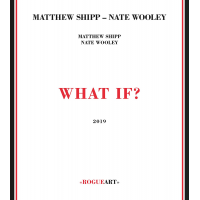Home » Jazz Articles » Album Review » Kyoko Katsunuma + Jun Miyake: Colomena
Kyoko Katsunuma + Jun Miyake: Colomena
Like on Miyake's previous albums genre and instrumentation shift frequently yet coherently throughout. Katsunuma-penned "Torne" opens the album with pop-glazed, danceable immediacy. Sonic details and elegant instrumental interjections dissect the song and give it an exotic flavor to which Katsunuma's voice adds catchy hooks. Careful classical-guitar strokes channeling bossa-nova vibes are elegantly layered in the mix and, in interplay with Myake's distinguished Fender Rhodes ornamentations, pull through the record like a thread. The guitar's intimate and precise employment is especially prominent when split in two and divided over the speakers as demonstrated on "Flutta" or "Koralo." "Izuit An," "Frostita" or "Luce" are treated to almost orchestral proportions—featuring brass as well as strings—and justify Miyake's distinguished presence as a film composer and sound producer. A polyphone choir exercise, not dissimilar to the practice of Georgian choirs, breaks the sequence of the percussion-driven pop songs "Lotuso" and "Speguro." At times, even in-depth knowledge of the Japanese language won't help deciphering what Katsunuma's syllables add up to, seeing how they are often figments of her imagination that go with the music, as stated by the artist herself.
On Colomena's every note, each sound and all colors are carefully composed and placed at a specific position of the room and a particular moment in time. Kyoko Katsunuma observed Miyake's eye and ear for detail early on and talks about him in the liner notes: "'imprints of experiences' live vivaciously in his music transcending time, where every note has a unique spark to itself." His special sense for capturing profound emotions in music is what also convinced her to follow him in his move to Paris in 1995. The "imprints of experiences" she talks about refer to "internal voices" within each person which are born out of past experiences and, according to Katsunuma, guide the individual in their DNA throughout their lives. This album represents the memory of her journey in life and provides the listener access to her personal "internal voice" to rediscover the imprints of her ancient memories. A gesture that is as intimate as it is courageous which, with that context in mind, makes for a most compelling album.
Track Listing
Tonre; Inuit an; Flute; Mielo; Lotuso; Seguro; Koralo; Arbaro; Dido's Lament; Frostita; Luce; Niji wa tohku.
Personnel
Jun Miyake
trumpetJun Miyake: Fender Rhodes, piano, flugelhorn, soundscape/samples; Kyoko Katsunuma: vocals; Hitoshi Watanabe: bass; Masahiro Itami: guitar; Nicolas Montazaud: percussion; Ayako Tanaka: violin; Arnaud Vallin: violin; Jacques Gandard: violin; Julie Oddou: Violin; Akemi Fillon: viola; Marie Poulanges: viola; Cyrille Lacrouts: cello; Frederic Deville: cello; Andy bevanw: flute, saxophone; Abdoulaye Kouayaté: kora; Vincent Segal: cello, Michel Nguyen: viola; Philippe Morel: violin; Verena Chen: violin; Didier Havet: horn; Renaud Gabriel Pion: clarinet.
Album information
Title: Colomena | Year Released: 2019 | Record Label: P-Vine Records
Tags
PREVIOUS / NEXT
Support All About Jazz
 All About Jazz has been a pillar of jazz since 1995, championing it as an art form and, more importantly, supporting the musicians who make it. Our enduring commitment has made "AAJ" one of the most culturally important websites of its kind, read by hundreds of thousands of fans, musicians and industry figures every month.
All About Jazz has been a pillar of jazz since 1995, championing it as an art form and, more importantly, supporting the musicians who make it. Our enduring commitment has made "AAJ" one of the most culturally important websites of its kind, read by hundreds of thousands of fans, musicians and industry figures every month.





















